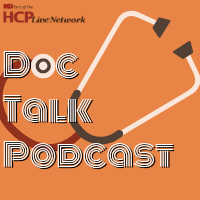Video
Advantages of LAI Antipsychotics for Schizophrenia
Author(s):
Transcript:
John M. Kane, MD: Erin, do you want to add anything regarding the advantages of LAIs [long-acting injectables] in your view?
Erin C. Crown, PA-C: There is no pill to remember to take, which is a huge advantage, and some of the oral antipsychotics have multiple times per day dosing or food intake requirements. Those become very complicated medication regimens, when we're asking for adherence. If we've reached someone who's had some cognitive decline, the more complicated we make it for them, the less likely they are to be able to be adherent.
As a health care provider, we know that if the injection was missed, they're going to decline. We can know if it was missed, because a health care provider administers it. Either they show up for it, or they don't. And if they don't, we have a wonderful opportunity to reach out to them, to try to contact them or other members of their treatment team, to try to get them into the clinic or into the pharmacy or wherever it is that they're receiving their injection, as soon as possible after that missed dose.
This knowledge helps to prevent them from having to restart it, or prevent them from having a relapse that might lead to a hospitalization or incarceration, or some kind of harm to themselves or others. Anecdotally, I would say that even if we're talking about the oral form of the same injectable medication, versus the injectable itself, many of my patients report that if they were having any kind of [adverse] effect on the oral antipsychotic, once they shift over to the injectable form, that [adverse] effect often is reduced or completely eliminated. This also encourages adherence. It has now become not only more convenient but more tolerable. And any time we can combine efficacy with tolerability, we're likely to have a better outcome.
Henry A. Nasrallah, MD: There are numerous advantages for long-acting injectables. I categorize them as biological, clinical, social, and financial. Let me elaborate on each. Biological, you save the patient massive brain tissue loss. Every psychotic episode, starting with the first one, patients lose about 11 to 12 cc of brain tissue. It has been published and replicated. Each cubic centimeter contains hundreds of millions of cells. The long-acting injectable will spare most patients the relapse that will destroy their brain and lead to disability.
Second, the clinical benefit. Every time the patient relapses, the brain, because of inflammation and free radicals that are destroying brain tissue, will develop treatment resistance. This has been shown and published repeatedly.
With every relapse, you need higher and higher doses, if at all. Sometimes they stop responding completely. A study from South Africa had patients take a long-acting injectable at first episode, and 65% of them did great. When they were sent back to their physicians, their psychiatrists, they put them back on oral [medication], and all of them relapsed within a few months.
When they realized what they'd done, they put them back on injectable, and 17% of them never responded again to the injectable risperidone. One in 6 patients never responded again after responding for 2 full years. We spare the patient that.
The third benefit is social consequences. We see incarceration often; 2 million people in the United States with schizophrenia have been incarcerated in the last year or two. This is terrible for the patient to be criminalized and to be treated poorly in the jails and sometimes not even given the medication, and then they're discharged with hardly any pills. The recidivism is enormous. This is a terrible consequence of relapse. When patients become psychotic, they do something erratic on the street and they get shipped to jail, because there are no more hospitals to take them to. This is another thing we can spare them.
The financial advantages are for the system. Schizophrenia is an expensive disease. It's one of the most expensive disorders in medicine. For 2000 diseases in medicine, 1 disease—schizophrenia—gets 20% of all Social Security disability. The indirect costs of supporting the patients for the rest of their lives are unbelievably expensive. We as the taxpayers, who are supporting the patients through Medicaid and Medicare, can save a lot of money by preventing inpatient hospitalization, which is the single greatest cost with schizophrenia. Much costlier than any medication we give them or injectable. By saving this money, we can channel it into some other health care initiatives and social programs that are badly needed, instead of continuing to spend $100 billion a year on schizophrenia.
Those are the 4 advantages that apparently many clinicians don't seem to have on their radar screen. Clinicians should pursue it as aggressively as possible. I tell my patients, “If you were my own son or daughter, this is what I would do for you. I want to treat you like a family member.” This is how you convince the patient, compassionately, that this is the best thing that they can do, take injectable antipsychotic [medication].
Transcript Edited for Clarity





